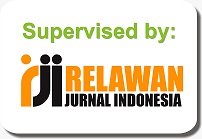The Online Learning Creativity Using the Google Meet Platform in Vocational High Schools
DOI:
https://doi.org/10.32939/tarbawi.v18i1.1313Keywords:
Covid 19 Pandemic, Online Learning, Google Meet PlatformAbstract Online learning during the Covid-19 pandemic is still looking for the best model. One important capital is the availability of online learning platforms. However, no studies currently explain the learning process using a unique platform for creativity. This study aims to describe the perceptions of teachers and students in learning during synchronous learning using the Google Meet platform and their creativity. This research is a qualitative descriptive study. The subjects in this study were teachers and students in vocational high schools conducting online learning. Data collection techniques were carried out through observation, interviews, and surveys. The instruments used were observation sheets, interview guidelines, and questionnaires. Data analysis was done using the triangulation technique; then, the final result was analyzed using the percentage technique. Based on field research, it is known that the Google Meet application is more effective than other learning application media. The use of Google Meet that students and teachers are interested in certainly supports effective online learning during the Covid-19 pandemic because students are more controlled in synchronous learning and teachers are more creative because of the features that support the Google Meet platform. The stages of online learning, from planning, and implementation, to evaluation through the Google Meet platform, can be very well facilitated. Thus teachers can use Google Meet as an alternative platform to support online learning because it is relevant and integrated with other learning support features.
Downloads
References
Aspers, P., & Corte, U. (2019). What is Qualitative in Qualitative Research. Qualitative Sociology, 42(2), 139. https://doi.org/10.1007/S11133-019-9413-7
Astini, N. K. S. (2020). Pemanfaatan Teknologi Informasi dalam Pembelajaran Tingkat Sekolah Dasar pada Masa Pandemi Covid-19. Lampuhyang, 11(2), 13-25. https://doi.org/10.47730/jurnallampuhyang.v11i2.194
Aswir, A., Hadi, M. S., & Dewi, F. R. (2021). Google Meet Application as an Online Learning Media for Descriptive Text Material. Jurnal Studi Guru Dan Pembelajaran, 4(1), 189–194. https://doi.org/10.30605/jsgp.3.3.2020.533
Benavides-Varela, S., Callegher, C. Z., Fagiolini, B., Leo, I., Altoè, G., & Lucangeli, D. (2020). Effectiveness of Digital-Based Interventions for Children with Mathematical Learning Difficulties: A Meta-Analysis. Computers & Education, 157, 103953. https://doi.org/10.1016/j.compedu.2020.103953
Creswell, J. W. (2016). Research Design: Pendekatan Metode Kualitatif, Kuantitatif, dan Campuran. Pustaka Pelajar.
Daud, A. (2019). Teaching Writing Using Google Apps For Education (GAFE). Indonesian Journal of Economics, Social, and Humanities, 1(1), 17–24. https://doi.org/10.31258/ijesh.1.1.17-24
Hutajulu, M. (2022). The Effectiveness Of Using Google Meet in Online Learning To Improve Mathematical Communication Skills. (JIML) Journal of Innovative Mathematics Learning, 5(1), 53–61. https://doi.org/10.22460/jiml.v5i1.10858
Jatmoko, D., Susanto, A., Purwoko, R. Y., Arifin, Z., & Purnawan, P. (2021). The Implementation of ARCS Learning Model to Improve Students Learning Activities and Outcomes in Vocational High School. Tarbawi : Jurnal Ilmu Pendidikan, 17(2), 137–144. https://doi.org/10.32939/tarbawi.v17i2.1008
Kivunja, C. (2015). Exploring the Pedagogical Meaning and Implications of the 4Cs "Super Skills" for the 21st Century through Bruner's 5E Lenses of Knowledge Construction to Improve Pedagogies of the New Learning Paradigm. Creative Education. https://doi.org/10.4236/ce.2015.62021
Nasution, A. R., & Nandiyanto, A. B. D. (2021). Utilization of the Google Meet and Quiziz Applications in the Assistance and Strengthening Process of Online Learning during the Covid-19 Pandemic. Indonesian Journal of Educational Research and Technology, 1(1), 31-34. https://doi.org/10.17509/ijert.v1i1.33367
Ningsih, S. R., & Erdisna, E. (2021). Implementasi E-Learning Sebagai Media Pembelajaran Online bagi Siswa Sekolah Menengah Kejuruan (SMK). JOISIE (Journal Of Information Systems And Informatics Engineering), 5(1), 20-28. https://doi.org/10.35145/joisie.v5i1.1307
Partos, T. R., Cropper, S. J., & Rawlings, D. (2016). You don’t see what I see: Individual Differences in the Perception of Meaning from Visual Stimuli. PloS one, 11(3), e0150615. https://doi.org/10.1371/journal.pone.0150615
Perdana, T. I., & Sugara, H. (2020). Kemampuan Berpikir Kreatif Siswa SMK Negeri 1 Kedawung dengan Menggunakan Model Problem Based Learning. Literasi: Jurnal Bahasa Dan Sastra Indonesia Serta Pembelajarannya, 4(2), 102-107. https://doi.org/10.25157/literasi.v4i2.4239
Pernantah, P. S., Nova, N., & Ramadhani, A. S. (2021). Penggunaan Aplikasi Google Meet dalam Menunjang Keefektifan Belajar Daring Masa Pandemi Covid-19 di SMA Negeri 3 Pekanbaru. Pedagogi: Jurnal Ilmu Pendidikan, 21(1), 45-50. https://doi.org/10.24036/pedagogi.v21i1.991
Prisuna, B. F. (2021). Pengaruh Penggunaan Aplikasi Google Meet terhadap Hasil Belajar. Jurnal Penelitian Ilmu Pendidikan, 14(2), 137–147. https://doi.org/10.21831/jpipfip.v14i2.39160
Purwoko, R. Y. (2017). Urgensi Pedagogical Content Knowledge dalam Meningkatkan Kualitas Pembelajaran Matematika. Jurnal Pendidikan Surya Edukasi (JPSE), 3(2), 42–55.
Purwoko, R. Y., Nugraheni, P., & Instanti, D. (2019, November). Implementation of Pedagogical Content Knowledge Model in Mathematics Learning for High School. In Journal of Physics: Conference Series (Vol. 1254, No. 1, p. 012079). IOP Publishing. https://doi.org/10.1088/1742-6596/1254/1/012079
Rakhmah, B., Sapti, M., & Pangestika, R. R. (2021). Deskripsi Kendala Pembelajaran Daring Melalui Whatsapp pada Mata Pelajaran Matematika di Sekolah Dasar. Jurnal Basicedu, 5(5), 3738-3746. https://doi.org/10.31004/basicedu.v5i5.1449
Setiana, D. S., Kusumaningrum, B., & Purwoko, R. Y. (2021). The Students’ Interest in Online Learning in Higher Education During the Covid-19 Pandemic. Edumatika : Jurnal Riset Pendidikan Matematika, 4(2). https://doi.org/10.32939/ejrpm.v4i2.932
Setiana, D. S., Purwoko, R. Y., & Sugiman. (2021). The application of mathematics learning model to stimulate mathematical critical thinking skills of senior high school students. European Journal of Educational Research, 10(1), 509–523. https://doi.org/10.12973/eu-jer.10.1.509
Setiawan, B. A., Rofi, S., & Jatmikowati, T. E. (2021). The Student Learning Activity Levels on the Online Learning During the Covid-19 Pandemic. Jurnal Pendidikan Islam Indonesia, 5(2), 186-197. https://doi.org/10.35316/jpii.v5i2.289
Widiyono, Y., Nugraeni, I. I., Purwoko, R. Y., & Suyitno, S. (2019). The Development of E-Learning using Communicative Competence. https://doi.org/10.4108/eai.21-9-2018.2281189
Widodo, A., & Nursaptini, N. (2020). Problematika Pembelajaran Daring dalam Perspektif Mahasiswa. ELSE (Elementary School Education Journal) : Jurnal Pendidikan Dan Pembelajaran Sekolah Dasar, 4(2), 100. https://doi.org/10.30651/else.v4i2.5340
Zainuddin, Z., & Keumala, C. M. (2018). Blended Learning Method within Indonesian Higher Education Institutions. Jurnal Pendidikan Humaniora, 6(2), 69-77. http://journal.um.ac.id/index.php/jph/article/view/10604
Downloads
Published
Issue
Section
License
Copyright (c) 2022 Riawan Yudi Purwoko, Aci Primartadi, Yosep Efendi, Thomas Amin

This work is licensed under a Creative Commons Attribution-ShareAlike 4.0 International License.









